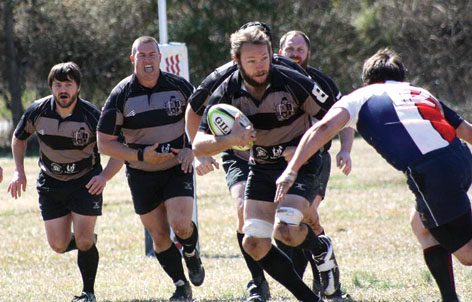By Mike Goodson/Sports Correspondent
Yes, Virginia, Gadsden does has a rugby team!
Last Saturday (Mar. 7), the Gadsden Pioneers won their second game of the season, beating Clinch River (Va.) Crusaders, 54-19, at the athletic field on North 32nd Street in Alabama City.
The Pioneers, who defeated D-3 Chattanooga earlier in the season, will look to avenge their only loss of the year when they line up against Huntsville at home on Mar. 21. Gadsden will also play exhibition games against Jacksonville State and UAB.
The Pioneers last season had a 5-5 record that included a first place finish in the Birmingham Vulcan Tournament and a second place showing in the Alabama State Games.
The club’s home games are played on Saturdays in Alabama City beginning at 1 p.m. Admission to all local home games is free.
Montgomery, Birmingham and Mobile also field rugby teams.
The thought of rugby was a little out of touch to someone like myself who grew up with Alabama and Auburn football. I always considered rugby a cross between so-ccer, football and ultimate fighting, but it only took a few minutes for me on Saturday to become a fan of the game.
Rugby is slowly catching on throughout the United States and around the globe, with the sport being included in the upcoming Olympic Games. The World Rugby Cup, first held in 1987, takes place every four years with the winner of the tournament receiving the Webb Ellis Cup.
Rugby union – or simply rugby – is a contact team sport that originated in England in the early 19th century. The sport is based on running with the ball in hand. In its most common form, a rugby game is played between two teams of 15 players using an oval-shaped ball on a rectangular field with H-shaped goal posts on each try line.
William Webb Ellis is often credited with the innovation of running with the ball in hand in 1823 at Rugby School when he allegedly caught the ball while playing football and ran towards the opponents goal.
In rugby union, the team that scores the most points wins the game. Points can be scored in several ways. A try, scored by grounding the ball in the in-goal area between the goal line and the dead ball line, is worth five points, while a subsequent conversion kick scores two points.
A successful penalty kick or a drop goal each scores three points. The values of each of these scoring methods have been changed over the years.
For more information, visit the team’s facebook page at gadsden rugby club.





